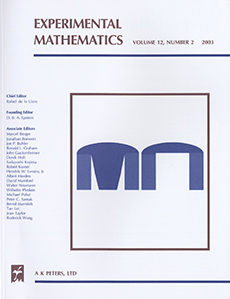Abstract
Let $\cal G$ be a pseudogroup defined on a tree $Z$, and let $\Gamma$ be a finite set of generators for $\cal G$. The reduced fundamental group $\pibar(\Gamma)$ of $\Gamma$ is defined here. I give a new and experimentally inspired proof of a result of Levitt: If $\pibar(\Gamma)$ is a free group, there exists a finite set of generators $\Psi$ for $\cal G$ such that $\pibar(\Psi)$ is free on the set $\Psi$. If $\Psi$ has no dead ends, it is an interval exchange.
Like Gaboriau, Levitt and Paulin [Gaboriau et al. 1992], I prove that if $G$ is a finitely presented group acting freely on an $\R$-tree and $\Gamma$ is a corresponding set of pseudogroup generators, we're in one of the following situations: either $G$ splits as a free product with a noncyclic free abelian summand, or $\Gamma$ can be reduced to an interval exchange by normalizing and removing a finite number of dead ends, or the process of removing dead ends from $\Gamma$ does not terminate in a finite number of steps.
Citation
Frank Rimlinger. "{${\bf R}$}-trees and normalization of pseudogroups." Experiment. Math. 1 (2) 95 - 114, 1992.
Information




